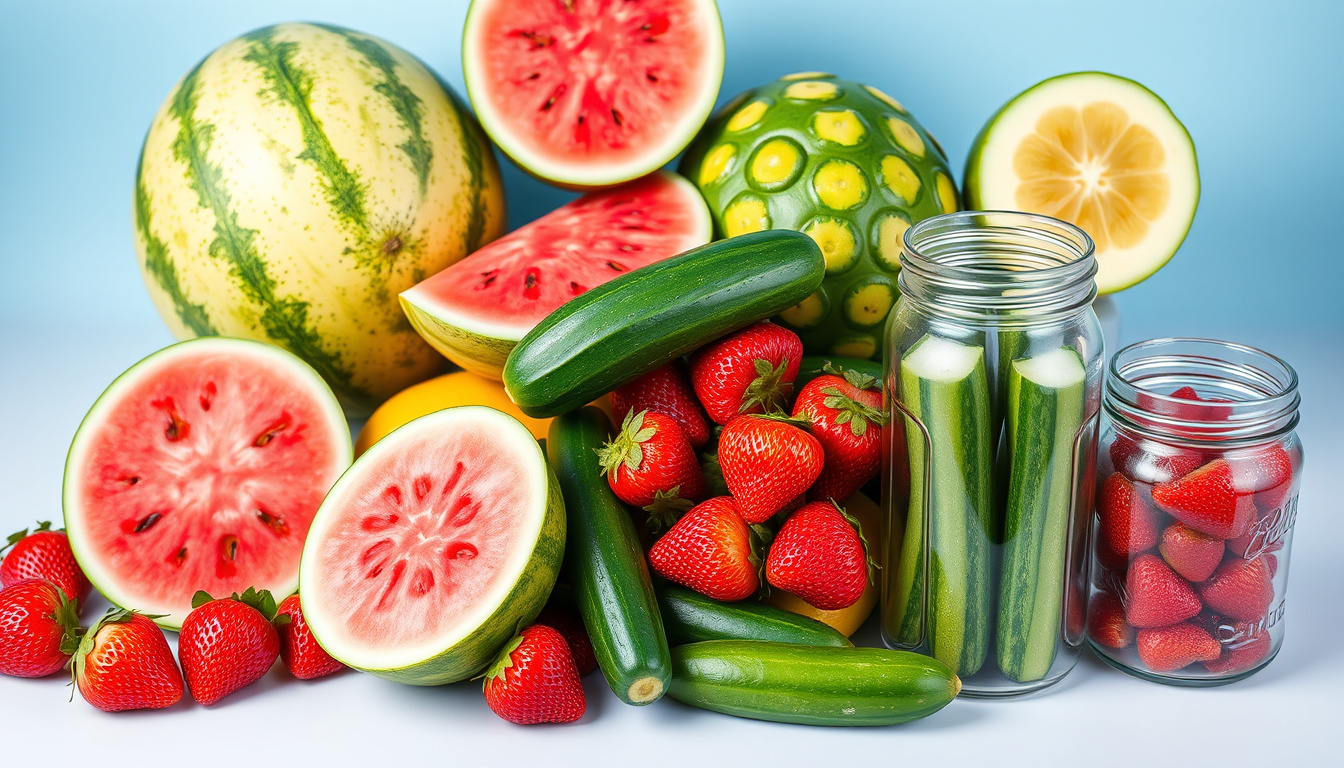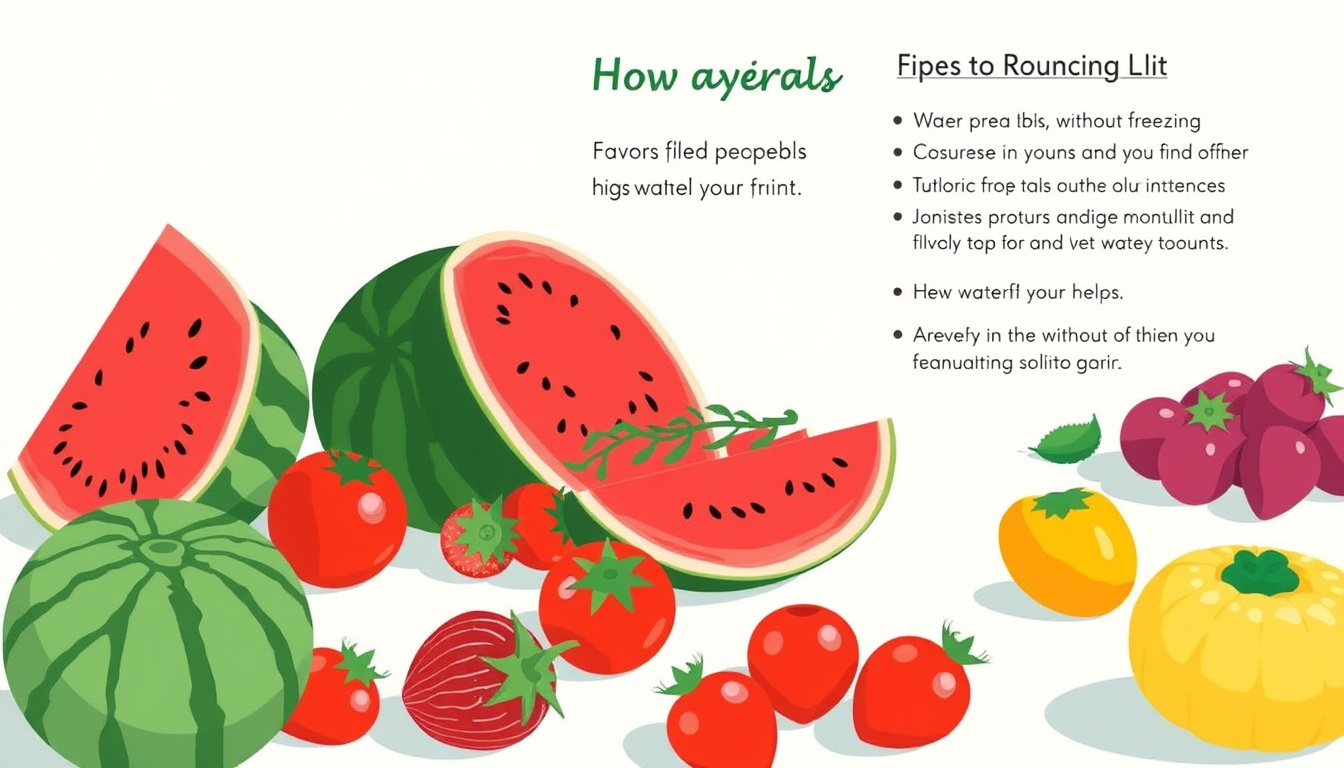Freezing is a popular method for prolonging the shelf life of foods, but not all items fare well in the freezer. High water content fruits, such as strawberries, cucumbers, and watermelon, can degrade in quality when frozen, leading to texture and flavor issues upon thawing. In this guide, we’ll explore why you should avoid freezing high water content fruits and suggest better preservation methods to retain their freshness and taste.
Why Avoid Freezing High Water Content Fruits?
1. Textural Changes
Fruits like cucumbers, oranges, and strawberries are primarily made up of water. When frozen, the water inside these fruits forms ice crystals, which can rupture the cellular structure. This results in a mushy, unpalatable texture when the fruit is thawed. As chef Palak Patel notes, the integrity of high-water-content ingredients tends to break down, making them less desirable for eating raw or using in recipes after freezing.
2. Flavor Degradation
The freezing process can also dull the flavors of these fruits. High water content fruits are best enjoyed fresh when their natural sweetness and crispiness are at their peak. Freezing can lead to a loss of flavor, making them taste bland or off when defrosted.
3. Nutritional Loss
While freezing can generally preserve the nutritional integrity of many foods, the process can significantly alter the bioavailability of some vitamins, particularly those sensitive to cold temperatures and oxygen. The longer fruits are frozen, the more nutrients they can lose. Therefore, consuming high water content fruits fresh allows for better nutritional benefits.
Fruits to Avoid Freezing
Here are some high water content fruits that you should avoid freezing:
- Strawberries: Known for their fragile structure, freezing strawberries changes their texture significantly.
- Cucumbers: Freezing causes cucumbers to become watery and mushy.
- Lettuce: Ice crystals ruin the crisp texture and make it soggy once thawed.
- Watermelon: The juicy flesh becomes mushy, altering its refreshing quality.
- Tomatoes: They lose texture significantly; although sauces may freeze well, whole or sliced tomatoes should not.
- Peaches: Without blanching, peaches develop an unpleasant mushiness when thawed.
Better Preservation Methods
Instead of freezing, consider these alternatives to preserve the freshness of high water content fruits:

1. Refrigeration
Most high water content fruits maintain their quality well in the refrigerator. Store them in a breathable container to allow for air circulation and prevent mold growth. For instance, strawberries should be kept in their original packaging or a paper towel-lined container to absorb excess moisture.
2. Dehydration
Dehydrating fruits can intensify their flavor and make for a chewy snack. A dehydrator or a low-temperature oven can effectively remove the moisture while retaining nutrients. Dried fruits can be stored for longer periods and are great additions to trail mixes and baked goods.
3. Canning or Jamming
For fruits that can be transformed, consider making jams or preserves. This method allows you to enjoy the taste of seasonal fruits year-round without the drawbacks of freezing.
4. Making Smoothies
If fruits are nearing their ripe limit, consider turning them into smoothies. Blend and consume immediately, or pour into ice cube trays for later use in other recipes.
Conclusion
While freezing may seem like an easy way to preserve high water content fruits, the resulting textural and flavor changes often outweigh the benefits. Instead, opt for refrigeration, dehydration, canning, or creative use in recipes to maintain their delicious freshness. Prioritizing the proper storage of these fruits ensures that you can enjoy their vibrant taste and optimal nutrition.
>> Chest Freezer Reviews <<
>> Upright Freezer Reviews <<

